“Through this program I’ve received valuable resources for career success and mentorship. The Centennial Program also provides a supportive community while navigating a new career path. I am so grateful for my experience.”-current Centennial member
Centennial Scholars/Clinicians Program
A Commitment to Social Impact and Belonging
The Centennial Scholars/Centennial Clinicians (CS/CC) Program is designed to support departments developing faculty from different backgrounds who experience health disparities in Wisconsin. Faculty from varied backgrounds enhance the quality of education, clinical care and research at the University of Wisconsin School of Medicine and Public Health.
The Centennial Scholars/Centennial Clinicians Program encourages and facilitates the development of a research and educational network of faculty members across SMPH.
Investing in the future
Faculty serve as visible and available role models for students and trainees. Role models such as the Centennial Scholars/Clinicians are absolutely vital if we are to prepare our students to be effective participants in the 21st century health care workforce, where they will face widely diverse people, cultures, and ideas in an environment that is becoming increasingly global.
Program information
We acknowledge that various communities encounter persistent unmet health needs in Wisconsin. Selection of applicants will be based on criteria that prioritize relevant experiences and contributions to addressing these significant health challenges. Qualified applicants will be selected based on the following criteria:
1. Applicants should be in their first year as faculty members.
2. Applicants likely to contribute varied perspectives to the program because of their life experiences, including overcoming personal adversity or hardship.
3. Special consideration will be given to those applicants whose prior work experience, area of study, community service, record of participation in mentoring or other accomplishments demonstrate a commitment to future service to populations experiencing health disparities, including those from groups with documented unmet health needs in Wisconsin.
We are currently updating the application process and application dates for the Centennial program. Check back here or contact csp@med.wisc.edu with questions.
OFAD Quick Links
Frequently Asked Questions
This is an accordion element with a series of buttons that open and close related content panels.
Eligibility
We acknowledge that various communities encounter persistent unmet health needs in Wisconsin. Selection of applicants will be based on criteria that prioritize relevant experiences and contributions to addressing these significant health challenges. Qualified applicants will be selected based on the following criteria:
1. Applicants should be in their first year as faculty members.
2. Applicants likely to contribute varied perspectives to the program because of their life experiences, including overcoming personal adversity or hardship.
3. Special consideration will be given to those applicants whose prior work experience, area of study, community service, record of participation in mentoring or other accomplishments demonstrate a commitment to future service to populations experiencing health disparities, including those from groups with documented unmet health needs in Wisconsin.
If you have questions regarding eligibility, please contact the program leadership at csp@med.wisc.edu
How is the Centennial Scholars/Clinicians Program structured?
- The CS/CC Program is a cohort of faculty members who are provided opportunities for networking and for meeting periodically for professional development topics.
- The CS/CC Program is overseen by an Advisory Committee (AC). The AC reviews Program applications, conducts welcome calls for new Scholars/Clinicians, attends Scholars/Clinicians’ Annual reviews, and can provide support for Scholars/Clinicians navigating issues relevant to faculty from underrepresented groups at SMPH.
Program Participation Expectations for Scholars/Clinicians
- The CS/CC Program holds meetings roughly once per semester. All Scholars/Clinicians are required to attend these meetings, and Departments are expected to release Scholars/Clinicians from clinical or administrative duties for these meetings. The agenda for the meetings will be determined by the Advisory Committee. Scholars/Clinicians are encouraged to make suggestions about the topics for these meetings, and may be involved in coordinating speakers for these meetings.
- The CS/CC Program holds two networking/social events per year. Attendance is strongly encouraged.
- An annual review will be conducted for each Scholar/Clinician. Review by the Advisory Committee will be an opportunity for the scholar/clinician to discuss their career progress and any barriers the faculty member is experiencing with regard to making progress in their career and their scholarly activity.
- The CS/CC Program Annual Meeting will be attended by either the Scholar/Clinician’s Department Chair or mentor(s) of their choosing, and at least one member of the Centennial Program Advisory Committee. The CS/CC Program Annual Meeting is meant to provide Scholars/Clinicians with an opportunity to share Scholars/Clinicians accomplishments, as well as discuss any barriers to success Scholars/Clinicians may encounter.
- The CS/CC Program Annual Meeting is separate from any annual Mentor Committee meetings, and should not be treated as a Mentor Committee meeting for purposes of promotion.
- Each Scholar/Clinician will participate in an Annual Survey to give feedback to the Advisory Committee.
- The program’s leadership may terminate an award, after careful review and consideration if there are circumstances which warrant termination such as misallocation of funds.
Application Process
We are currently updating the application process and application dates for the Centennial program. Check back here or contact csp@med.wisc.edu with questions.
Centennial Scholars/Clinicians Program Budget Guidelines (information for Department Chairs)
- The sum of $210,000 will be distributed to the Department over 3 years or 7 years, on a yearly basis.
- It is expected that the Department Chair will have a dialogue with the Scholar/Clinician about developing the budget.
- The Centennial Scholarship may be used for compensation support or other investments that will advance the research of the recipient. “Compensation support” in this context includes support for the Scholar’s or designated research staff base salary and benefits.
- A revised budget may be submitted by the Department Chair for approval each year the Scholar/Clinician is in the program.
K Awards and Centennial Program Funding
The funding from the Centennial Program (CP) is not analogous to an individual or an institutional K award. It is internal SMPH funding and unlike K awards none of the funds come from the NIH. You can list CP funding under internal funding on your CV. Because the CP program is internally funded there is no prohibition for using the funding when one has an NIH K Award. In this case, the CP funding can be used to support research expenses or research personnel or the funds can be banked to support the faculty member after the K funding runs out.
Who can I contact for more information?
- Email csp@med.wisc.edu to reach:
- Elizabeth Felton, MD, PhD (Advisory Committee Co-Chair)
- Shaneda Warren Andersen, MS, PhD (Advisory Committee Co-Chair)
- Meghan Gauger, Program Administrator
Centennial Scholars and Clinicians
This is an accordion element with a series of buttons that open and close related content panels.
Meet the Centennial Scholars/Clinicians
Stephannie Acha-Morfaw, MD (2023)
Department of Emergency Medicine

Yohualli Anaya, MD, MPH (2023)
Department of Family Medicine & Community Health

Jade Anderson, MD (2024)
Department of Radiology
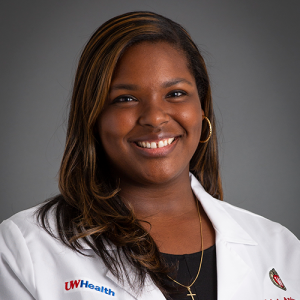
Matthew Anderson, PhD (2023)
Department of Medical Genetics

India Anderson-Carter, MD (2024)
Department of Obstetrics and Gynecology

Silvia Barcellos, PhD (2025)
Department of Population Health Sciences

Shenikqua Bouges, MD (2021)
Department of Medicine, Division of Geriatrics and Gerontology

DeMarco Bowen, MD (2025)
Department of Pediatrics
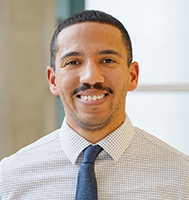
Gustavo Caballero-Flores, PhD (2024)
Department of Medical Microbiology & Immunology
Shannon Cannon, MD (2022)
Department of Urology

Melisa Carrasco McCaul, MD, PhD (2022)
Department of Neurology

Diana Carvajal, MD (2025)
Department of Family Medicine and Community Health
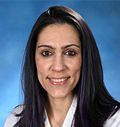
Fiatsogbe Dzuali, MD (2026)
Department of Dermatology
Edwarda Golden, MD (2025)
Department of Radiology

Elias Granadillo Deluque, MD (2025)
Department of Neurology
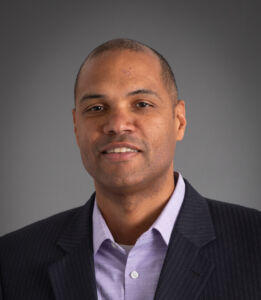
Nao Ito, DPT, PhD (2025)
Department of Orthopedics and Rehabilitation

Lewis Jordan, MD (2025)
Department of Radiology
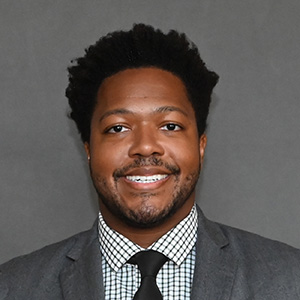
Patrick Lee, MD, PhD (2025)
Department of Surgery
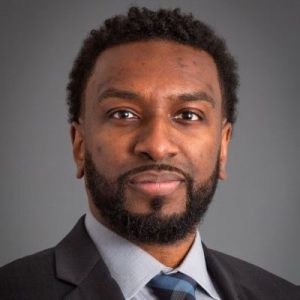
Allexa Licon, MD (2024)
Department of Medicine
![]()
Elebeoba E. May, PhD (2022)
Department of Medical Microbiology and Immunology
Maria Mora Pinzon, MD, MS, FACPM (2023)
Department of Medicine, Division of Geriatrics and Gerontology

Kwadwo Oduro Jr, MD, PhD (2024)
Department of Pathology
Chinelo Onyenekwu, MD (2024)
Department of Pathology

Hector “Santi” Porragas, MD (2026)
Department of Obstetrics and Gynecology
Awa Sanneh, MD (2025)
Department of Obstetrics and Gynecology

Javier Santiago, MD (2025)
Department of Urology
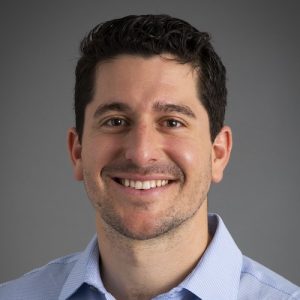
Christine Sharkey, MD (2021)
Department of Medicine, Division of Rheumatology

Quaovi Sodji, MD, PhD (2023)
Department of Human Oncology
Andrew Steinfeldt, MD (2026)
Department of Emergency Medicine

Jesús Treviño, MD, MBA (2024)
Department of Emergency Medicine

Tajah Tubbs (2026)
Department of Emergency Medicine

Johnny Uelmen, PhD (2025)
Department of Population Health Sciences

María Virumbrales-Muñoz, PhD (2023)
Department of Obstetrics and Gynecology

Morgan White, MD (2023)
Department of Family Medicine & Community Health

Gabrielle Winston-McPherson, PhD (2024)
Department of Pathology

Advisory Committee
Elizabeth Felton, MD, PhD, Co-Chair, Department of Neurology
Shaneda Warren Andersen, MS, PhD, Co-Chair, Department of Population Health Sciences
Pablo Gomez, MD, PhD, Department of Medical History and Bioethics, History of Medicine
Erica Knavel Koepsel, MD, Department of Radiology
Michael Mancera, MD, Department of Emergency Medicine
Dawd Siraj, MD, MPHTM, Department of Medicine, Division of Infectious Disease
Alumni Scholars
Nicci Owusu-Brackett, MD (2024), Department of Surgery
Francisco Alvarado Guillen, PharmD, PhD (2022), Department of Medicine
Andrea Gilmore-Bykovskyi, PhD, RN (2022),Department of Emergency Medicine
Vanessa Sperandio, PhD (2022), Department of Medical Microbiology and Immunology
Erica Knavel Koepsel, MD (2021), Department of Radiology
Ivan Rosado-Mendez, PhD (2021), Department of Medical Physics
Claudette Adegboro, MD (2021), Department of Pediatrics
Fred Ketchum, MD, PhD (2021), Department of Neurology
Gloria Morel, PsyD (2021)
Sancia Ferguson, MD (2020), Department of Medicine
Tiffany Green, PhD (2020), Departments of Population Health Sciences and Obstetrics and Gynecology
Reiner Hernandez, PhD (2020), Department of Medical Physics
Marietou Ouayogode, PhD (2020), Department of Population Health Sciences
Narjust Duma, MD (2020)
Lisa Jones, MD, MPH, MMCi (2019)
Shaneda Warren Andersen, PhD (2019), Department of Population Health Sciences
Jasmine Zapata, MD, MPH (2018), Department of Pediatrics
Bolanle Famakin, MD (2018), Department of Neurology
Héctor Valdivia, MD, PhD (2018), Department of Medicine, Division of Cardiovascular Medicine
Lisa Barroilhet, MD (2017), Department of Obstetrics and Gynecology
Dawd S. Siraj, MD, MPH&TM (2017), Department of Medicine, Division of Infectious Diseases
Elizabeth Felton, MD, PhD (2016), Department of Neurology
Michael Mancera, MD (2015), Department of Emergency Medicine
Vanessa Tamas, MD (2015)
Olachi Mezu-Ndubuisi, MD, OD (2014)
Jason W. Stephenson, MD (2014), Department of Radiology
Ozioma Okonkwo, PhD (2013), Department of Medicine, Division of Geriatrics and Gerontology
Pablo F. Gómez, PhD, MD (2013), Department of Medical History and Bioethics
Carla Pugh, MD, PhD, FACS (2013)
Angela Byars-Winston, PhD (2012), Department of Medicine, Division of General Internal Medicine
Chris Capitini, MD (2012), Department of Pediatrics
Jesse Roach, MD (2011)
Eneida Mendonça, MD, PhD (2011)
Tracy M. Downs, MD, FACS (2010)
Heather M. Johnson, MD (2010)
Chanel T. Tyler, MD (2010)
Dayle B. DeLancey, PhD (2009)



